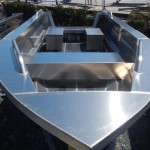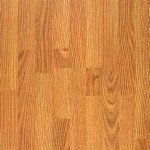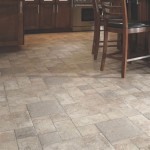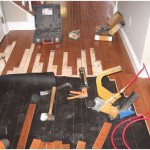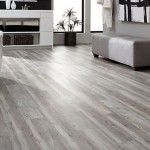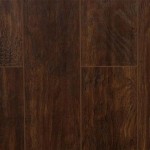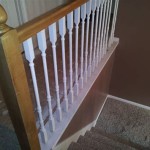Essential Aspects of Wood Laminate or Vinyl Flooring
Deciding between wood laminate and vinyl flooring can be a daunting task. Both options offer unique advantages and drawbacks, so it's important to understand their key characteristics before making a decision. Here's a comprehensive guide to help you weigh the pros and cons of each flooring type to make an informed choice:
Wood Laminate Flooring
Wood laminate is a durable, budget-friendly option that mimics the look of hardwood flooring. It consists of multiple layers, including a high-density fiberboard core, a photographic image layer, and a wear-resistant top layer.
Pros:
- Affordability: Wood laminate is generally less expensive than hardwood and other flooring options.
- Durability: The wear-resistant top layer makes wood laminate resistant to scratches, dents, and fading.
- Easy Installation: Wood laminate planks interlock, making installation quick and hassle-free.
- Water Resistance: While not waterproof, some wood laminate options are water-resistant, protecting them from spills and moisture.
Cons:
- Not Waterproof: Wood laminate is not waterproof, so it's not suitable for areas with high moisture levels.
- Can't be Refinished: Unlike hardwood, wood laminate cannot be refinished to remove scratches or damage.
- Hollow Sound: Wood laminate may have a hollow sound when walked on, especially if not installed on a thick underlayment.
Vinyl Flooring
Vinyl flooring is a versatile, water-resistant choice that's available in various styles and colors. It comes in two main types: luxury vinyl plank (LVP) and luxury vinyl tile (LVT).
Pros:
- Waterproof: Vinyl flooring is 100% waterproof, making it an excellent choice for kitchens, bathrooms, and other moisture-prone areas.
- Durability: Vinyl flooring is highly durable and resistant to wear, scratches, and dents.
- Comfort: Vinyl flooring is softer and more comfortable to walk on than hard flooring options.
- Versatility: Vinyl flooring is available in a wide range of styles, colors, and textures, allowing for endless design possibilities.
Cons:
- Cost: Vinyl flooring can be more expensive than wood laminate, especially high-quality LVP and LVT options.
- Installation: Vinyl flooring installation can be more complex than wood laminate, requiring more skill and specialized tools.
- Dent Susceptibility: While durable, vinyl flooring can be susceptible to denting from heavy objects or sharp edges.
Choosing the Right Option
The best flooring choice for your home depends on your specific needs, preferences, and budget. Consider the following factors to make an informed decision:
- Water Resistance: If you're looking for a waterproof flooring option, vinyl is the clear winner.
- Durability: Both wood laminate and vinyl offer good durability, but vinyl tends to be more resistant to scratches and dents.
- Cost: Wood laminate is generally more affordable than vinyl, especially high-end LVP and LVT options.
- Aesthetic: Wood laminate provides a more realistic hardwood look, while vinyl offers a wider range of styles and colors.
- Installation: Wood laminate is easier to install than vinyl, which may require professional help for complex installations.
Ultimately, the decision between wood laminate and vinyl flooring is a personal preference. By weighing the pros and cons of each option carefully, you can choose the flooring that meets your needs and enhances the beauty and functionality of your home.

Vinyl Vs Laminate Flooring Pros Cons And Differences Forbes Home

Laminate Vs Vinyl The Home Depot

What S The Difference Between Vinyl And Laminate Flooring Igloo Surfaces

Laminate Vs Vinyl Flooring Comparison Guide

How To Tell If Your Floor Is Hardwood Or Vinyl Garrison Collection

Vinyl Vs Laminate Flooring What S The Difference

Laminate Vs Hardwood Vinyl Flooring 50floor

Laminate Vs Vinyl Flooring How To Choose The Family Handyman

Laminate Vs Vinyl Flooring Which Is The Best Option

Vinyl Vs Laminate Flooring Pros Cons Comparisons And Costs Fixr
Related Posts

